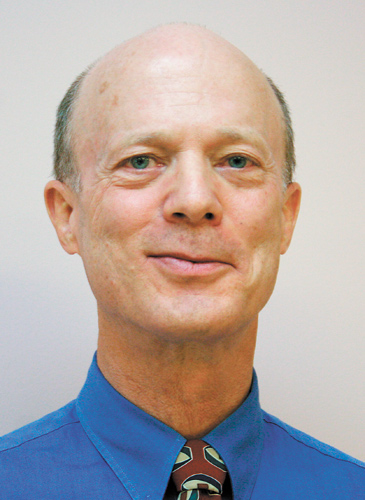
COLUMBIA—People from diverse backgrounds become part of the Catholic community through the Rite of Christian Initiation for Adults. The instructors, in turn, must respond to their students’ different needs and experiences so that no one who seeks Christ is turned away.
That was the focus of “Making Disciples of the Lord: RCIA and Evangelization,” sponsored by the diocesan Office of Catechesis and Christian Initiation June 11 at Our Lady of the Hills Church.
 Jim Schellman was the keynote speaker. He is the executive director of the North American Forum on the Catechumenate and was previously the associate director of the International Commission on English in the Liturgy. He was also one of the final editors of the “Rite of Christian Initiation for Adults,” the central document for the RCIA process and its celebrations.
Jim Schellman was the keynote speaker. He is the executive director of the North American Forum on the Catechumenate and was previously the associate director of the International Commission on English in the Liturgy. He was also one of the final editors of the “Rite of Christian Initiation for Adults,” the central document for the RCIA process and its celebrations.
Schellman said all evangelization is essentially the work of bringing people back to God to complete the relationship that was broken when humans turned away from the Lord to lead a life of sin.
He highlighted a quote from St. Augustine which describes the life of a Christian as “an exercise of holy desire” to be united with God.
He said RCIA leaders need to remember that each person’s journey to becoming a Catholic is different, that some people will take longer than others to complete the process, and many have complicated family and religious issues that need to be understood and discussed.
“We’re about introducing people to the Lord in the way they need to come to him, in the way God wants them, rather than how we think they could come to the church,” he said. “It’s about the person who is the receiver of the message.”
Schellman said people convert to a new life as a Christian believer. He said RCIA leaders also need to live their lives as a process of constant conversion, constantly seeking to learn more about the faith, quell selfish desires and bring others into the Catholic community.
“If a person is called to the Body of Christ, and we’re not getting them on their journey, then part of God’s work is not being done,” he said. “God has something in mind for those he calls, and the Body of Christ needs all of its parts.”
Other workshops at the event concentrated on how to deal with issues of marriage, divorce and annulments and how to assist RCIA students from a variety of religious backgrounds.
Sts. Cyril and Methodius Sister Pamela Smith, director of catechesis and Christian initiation for the diocese, led a workshop on “Mystagogia: What Now?” Mystagogia is a Greek word that means “education in the mysteries.” She discussed ways to help new Catholics continue their study of the faith.
She suggested that RCIA leaders keep in touch with their former students in the months after they first enter the church. They should encourage them to receive the sacrament of reconciliation, continue to make good examinations of conscience, and seek some sort of spiritual counsel or ongoing faith formation.
It is important that new members of the church are encouraged to do volunteer work or perform other services in the parish, such as lectoring, Sister Pam said, so they feel they are truly part of a faith community.
